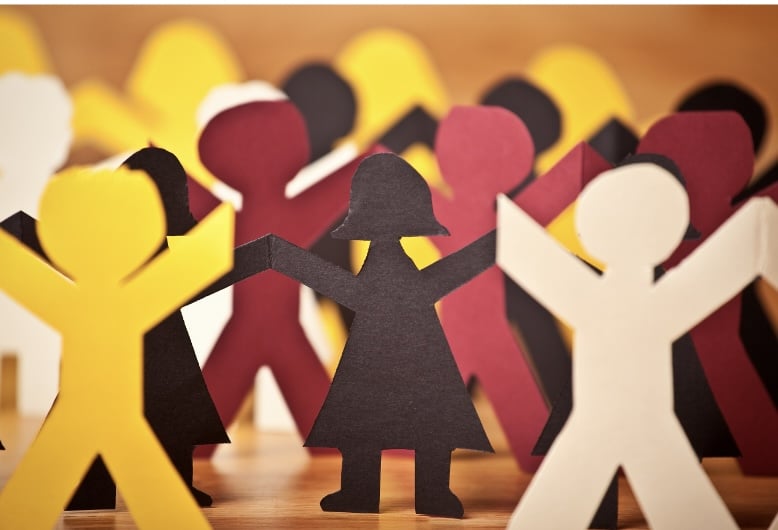The month of May is recognized in the United States for both Asian American and Pacific Islander (AAPI) Heritage Month and Mental Health Awareness Month.
Being raised in an Indian immigrant household in the United States since the age of 3, I found it ironic and important that the intersection of these two observances happens in the same month. Ironic because mental health is not a topic that ever came up during my childhood. And important for the same reason.
Therefore, I felt that this is a great opportunity to bring awareness to organizations that are addressing mental health issues.
AAPI Heritage Month
The AAPI community, which includes the Indian American community that I am a part of, is one of the fastest-growing racial groups in the U.S. The entire community is incredibly diverse and includes members from a wide range of countries and cultures.
Despite coming from such a diverse area, what they have in common is that they often face similar mental health challenges. These challenges are due to a variety of reasons, including cultural barriers, discrimination, and stigma. Ignoring these challenges can come at a very high cost to those who are struggling.
Mental Health Awareness Month
This is where Mental Health Awareness Month can play a significant role. Using this month as a starting point for conversations in our homes and communities, we can raise awareness, promote access, and educate our community on mental health.
This can help break the stigma. Breaking the stigma can encourage individuals to seek help when they need it. And that’s when healing begins.
Charities addressing Mental Health Issues
If you are looking for resources for yourself or someone you know, it can be hard to know where to start. Here are a few to know about, and some specifically address the challenges and stigma faced in the AAPI community.
1. National Alliance on Mental Illness (NAMI)
A grass roots organization that started in 1979, NAMI envisions a world where all people affected by mental illness live healthy and fulfilling lives. They provide advocacy, education and support to help people achieve this goal.
Their website provides tons of information, including a comprehensive resource directory and a form to pledge to be stigma-free.
**Specifically for the AAPI Community, they offer a FREE virtual monthly support group**
2. Crisis Text Line
Crisis Text Line provides free, confidential, 24/7 high quality text/What’s App based mental health and crisis intervention support. Get a quick glimpse of what they do on our Crisis Text Line Charity Snapshot.
Text or WhatsApp HOME to 741741 from anywhere in the United States, anytime, to get connected to a live, trained Crisis Counselor via a secure online platform.
3. The Ashna Project
The Ashna Project is a 501(c)(3) nonprofit organization based out of North Texas that seeks to provide advocacy, education, and support for mental health. Created in honor of Ashna Wagle, who ended her life by suicide on December 16, 2021, The Ashna Project seeks to honor her life and eliminate the stigma of mental health illness.
In honor of Ashna’s light, their mission is to embrace mental health through open dialogue and encourage purposeful living through advocacy, education, and support. Learn more about them and get the details on participating in their programs on Charities2Love’s nonprofit spotlight on The Ashna Project.
4. South Asian Mental Health Initiative (SAMHIN)
SAMHIN, is a non-profit that addresses the mental health needs of the South Asian community in the U.S. Their goal is to decrease the stigma and shame associated with mental illness and offer resources for people who seek help.
Their comprehensive website provides resources and a mental health provider network.
In addition, their blog covers a wide range of relevant health topics for the South Asian community.
5. Mental Health First Aid (MHFA)
If you ever wished you had the skills to learn how to “identify, understand and respond” to others with mental health issues, check out Mental Health First Aid from The National Council on Wellbeing. They offer a skills based training course that teaches participants about mental health and substance-use issues.
Their website states they have taught 3 million people, including Michelle Obama, the skills necessary to start a conversation and respond appropriately regarding mental health and substance abuse problems.
They have courses that teach how to assist adults or adolescents ages 12-18 years old. And their courses are a mix of in-person, virtual, or a combination of both. Some courses are federally funded and are free of charge. Find a course near you.
Suicide & Crisis Lifeline Number in the USA: 9-8-8
Additionally, it is crucial for everyone in the United States to know that 9-8-8 is the Suicide & Crisis Lifeline Number. This government funded Lifeline offers 24/7 call, text and chat access to trained crisis counselors who can help people experiencing suicidal, substance use, and/or mental health crisis, or any other kind of emotional distress. Their network even includes services for those that are deaf or hard of hearing.
Anyone concerned can also dial 988 to help someone else if they are worried about a loved one who may need crisis support.
An invaluable free resource, 988 was established to improve access to crisis services in a way that meets our country’s growing suicide and mental health-related crisis care needs.
Breaking the Stigma in the AAPI Community
Addressing the stigma about mental health in the AAPI community is crucial for our community to thrive. It involves individuals, families, community leaders, and healthcare professionals talking openly about issues that individuals and families face. It also means discussing them bravely, without fear of discrimination.
Kindness and Empathy in All Communities
Let’s help to create safe spaces for individuals to share their experiences and get support. Let’s make responding with empathy and kindness the norm in not just the AAPI community, but in every community.

